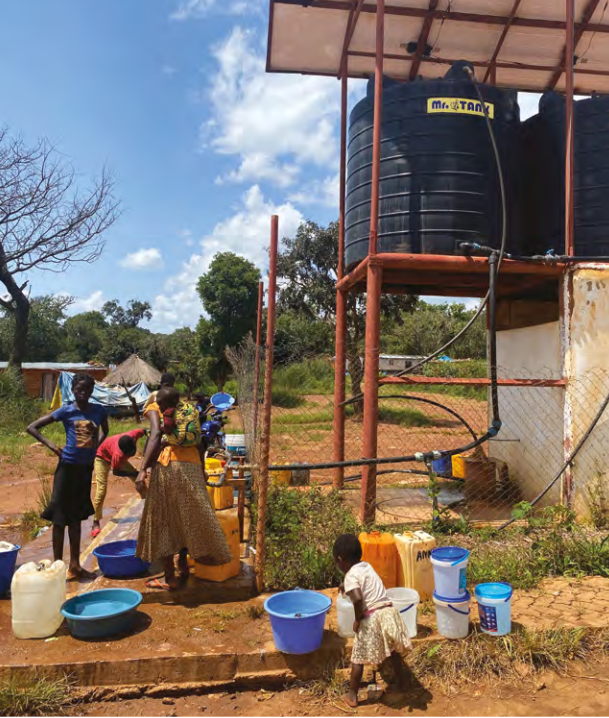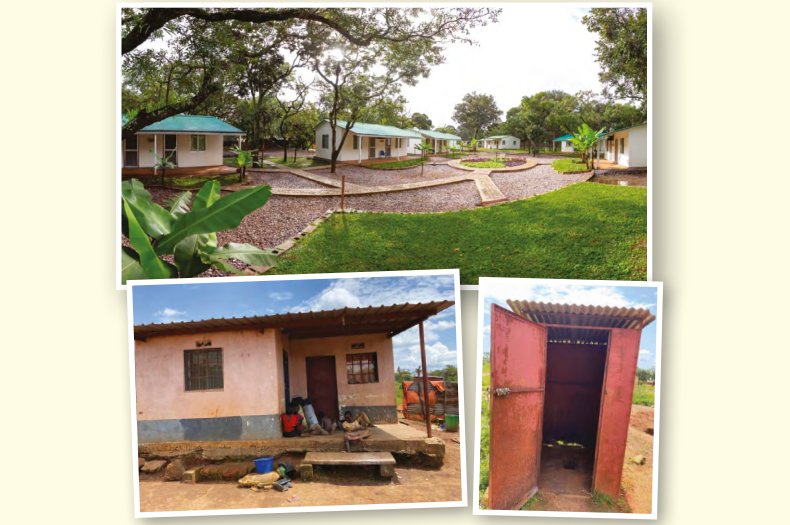A Vancouver-based mining company is facing allegations of human rights violations tied to the eviction of people living near its copper mine in the Democratic Republic of Congo.

According to Amnesty International, Ivanhoe Mines failed to provide adequate replacement housing for hundreds of people who lost their homes and farmlands in 2018 to make way for the sprawling Kamoa-Kakula mine.
None of the new houses built for those families had showers, running water or electricity, and the outdoor toilets provided were holes in the ground not connected to any sewage system, a report published Monday alleges.
It’s a stark contrast with the houses built for company staff and contractors, said Candy Ofime, Amnesty’s climate justice research, in an interview from DRC’s capital, Kinshasa.
“When people are being displaced and forced to leave land … what’s offered to them as an alternative has to be assessed against what adequacy looks like, both under Congolese law but also under international human rights law,” she said.
“You can’t say, well, these people are poor and squatters and we’re just going to give them a piece of land where there’s no social infrastructure, no access to water, no access to energy — because they were poor anyway.”
Ivanhoe Mines is one of two primary owners of the Kamoa-Kakula copper mine, with the China-based Zijin Mining also owning a 39.6-per cent stake. The DRC government owns 20 per cent.
Ivanhoe, however, is the majority owner of Kamoa Copper, which operates the mine in the southwestern part of the Central African country. It declined to comment on this story and Global News did not hear back from Zijin Mining by deadline.
While more than 1,300 people have been displaced by the mine, Amnesty and its co-author, Initiative pour la Bonne Gouvernance et les Droits Humains, studied 45 households resettled to the town of Muvunda for their report.
According to the human rights groups, Ivanhoe’s consultation with the residents prior to displacement was “meaningful, complied with international human rights standards, and went beyond the requirements of applicable Congolese law at the time of the resettlement.”
Each household was to receive accommodations similar to what they had before — “like for like” — however, Congolese mining regulations require anyone evicted by a project to “reach a standard of living superior to what they experienced in their original environment,” their report states.
The United Nations basic principles for development-based evictions further enshrine the right to an “adequate standard of living” that includes access to essential services, water, electricity and sanitation.
After their relocation, however, many members of the 45 households complained that in addition to lacking electricity, running water or proper sewage, their new homes were too small to accommodate their large family sizes.
While a primary school was built in Muvunda in 2018, Ivanhoe, in its 2022 sustainability report confirms that a health centre was not set to open until 2023 — about five years after the residents were displaced.
“You can’t just take people away from their communities and environments and their means of subsistence, transplant them in a different part of the concession and do things in a way that cuts corners,” she said.
“These companies are making billions of dollars a year … there must be a better way to do it.”

According to Ivanhoe’s human rights policy, it is “committed to promoting human rights and fostering economic growth and poverty alleviation by assisting the communities in which we operate to meet and exceed their basic needs.”
The company further conducts due diligence exercises to “proactively identify and address” human rights risks and encourages community members to bring human rights concerns to its attention. Compliance, it adds, is overseen by its board of directors and managed by its corporate social responsibility team.
In the 2022 sustainability report, Ivanhoe president Marna Cloete touted the 97-per cent local employment rate of the Kamoa-Kakula copper mine, as well as community development initiatives that have “succeeded in equipping communities with transformative infrastructure such as schools, health facilities and potable water access.”
That report also touted the replacement of “straw-hit hamlet structures with stronger, more spacious houses of a much higher quality,” with maize, cassava, fruit trees and vegetables provided to all those displaced.

Ivanhoe’s report acknowledged that water quality has been a “recurring grievance topic” among host communities, and has launched a number of borehole, water well, reticulation and sanitation projects to help address them.
Displaced residents interviewed by Amnesty and Initiative pour la Bonne Gouvernance et les Droits Humains said when they first moved in 2018, they had access to only one potable water source that was shared by thousands of others. When it broke down, residents said they paid for repairs out of pocket, paid to access water in other communities, and in some cases, used nearby water streams that gave them infections.
Kamoa issued responses to those allegations, stating that Muvunda residents broke the first borehole, which it repaired, and it has since added two more in the community. It further stated that it has resolved the two formal grievances it has received from residents, one of which related to potable water.
According to Kamoa’s website, other sustainability initiatives in the 41 villages impacted by the mine have produced hundreds of thousands of dollars in revenue for beneficiaries.

In 2019, the federal government appointed its first Canadian Ombudsperson for Responsible Enterprise, tasked with reviewing complaints of alleged human rights abuses by Canadian companies working abroad in in the garment, oil and gas, and mining industries.
The watchdog, however, has limited power. It is unable to proactively investigate without first receiving a complaint or examine alleged incidents prior to its creation. Further, it cannot compel companies to produce documents or testify, or issue any binding consequences.
That office did not respond to a request for comment on this story by deadline.
Emily Dwyer, policy director for the Canadian Network on Corporate Accountability, said she’s not sure what it will take to “tip the scales and lead to the Government of Canada to finally take its international human rights obligations seriously.”
“It’s disappointing just to see yet another example of this kind of abuse, but it’s not surprising unfortunately,” she said of the allegations made against Ivanhoe Mines.
“I think we can all agree that having access to clean drinking water, to electricity, to being properly compensated — if you’re being forced out of your home and community, are things that are really important, and there’s no reason for powerful companies to not be treating people around the world fairly.”





Comments